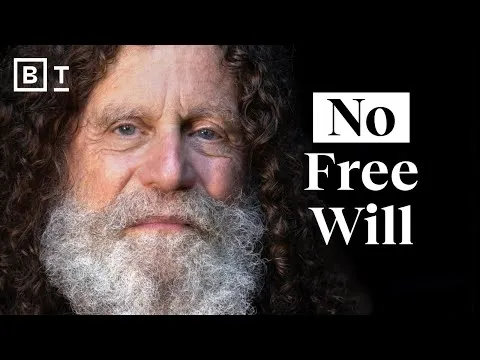I recently published a short story, The Oak Edition - which forms one of the many stories in an anthology of fiction that I would like to write.
The next one that I want to write is about a scientist making a discovery, an irrefutable revelation that free will does not exist. I will be researching both sides of the argument, but as I like to listen to things as I do... other things, I was putting the clothes away earlier today, and listening to a fascinating discussion between Robert Sapolsky and the Big Think YouTube channel.
I have also managed to regain access to my univeristy library's digital catalogue, so I have access to a lot of academic journals. Research is going to be an important part of writing a convincing story, and Sapolsky, in this interview, provides some fascinating experimental evidence about free will being a fabrication of our own minds.
Separately from this incredibly interesting (and at times mind-bending) discussion, I can see how the principles discussed here about a concept called distributed causality where every event can be interlinked through a chain of events mirror the pyschohistory discussed in Asimov's Foundation series.
Further to this video, which is just a taste of what the argument against the existence of free will is, there's a great deal of discussion here about emergence. It is a topic that I've thought about in relation to AI and conciousness - in that, once you achieve a certain level of simulating a human brain, that consciousness is something that naturally emerges.
Sapolsky discusses this in a really simple way. Take a single ant, and they look aimless and pointless. Take ten, and they are still chaotic, and we can't understand them, but take 10,000 of them, then you ants enslaving aphids, working to support the nest, each having individual and distinct jobs in the hive mind.
He also goes on to talk about how our frontal cortex takes something like twenty five years to become fully mature. The perspective he brings about genetic predisposition being something that is actively fought by the frontal context, yet, while also being a part of our genetic code, being a truly interesting thing - because it is what lets nature change us, beyond what our genetics pre-ordain.
It is hard to articulate these things in the sheer simplicity that Sapolsky does, and I've got a lot more reading and listening to do to fully wrap my head around his arguments that free will doesn't exist.
Causality, the environment and the complex topic of distributed causality is particularly interesting to me, because, well, physical and biological processes are rather like computer programs. For a given input, you're guaranteed a given output at a chemical and atomic level.
Therefore, each and everyone of those inputs (of which there are many billions) has a given output, and in concert, they self organise into an outcome that causes change, and we are just vessels observing that change.
It is the influences and the factors that we cannot understand or fathom that Sapolsky asserts as the cause of free will being nothing more than an illusion.
This is a topic that I will continue to explore, in order to try and build a convincing story around this topic.
